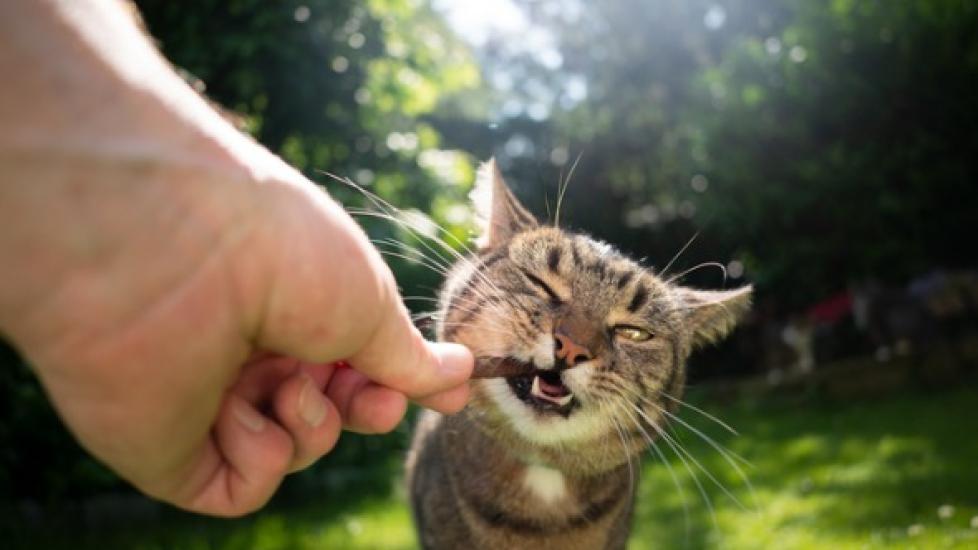 In the realm of feline fascination, few things are as universally beloved as catnip. This perennial herb has long been recognized for its ability to captivate cats with its intoxicating scent, inducing playful behavior and a state of euphoria that is both amusing and mystifying to human observers. However, not all cats respond to catnip, leaving some pet owners seeking alternative options to delight their curious companions. Enter silver vine plant (Actinidia polygama), an intriguing Japanese shrub that has recently garnered attention in the Western world as a potential substitute for traditional catnip. In this article, we will explore the wonders of silver vine plant—its history, properties, and how it can be incorporated into your kitty’s daily routine.
In the realm of feline fascination, few things are as universally beloved as catnip. This perennial herb has long been recognized for its ability to captivate cats with its intoxicating scent, inducing playful behavior and a state of euphoria that is both amusing and mystifying to human observers. However, not all cats respond to catnip, leaving some pet owners seeking alternative options to delight their curious companions. Enter silver vine plant (Actinidia polygama), an intriguing Japanese shrub that has recently garnered attention in the Western world as a potential substitute for traditional catnip. In this article, we will explore the wonders of silver vine plant—its history, properties, and how it can be incorporated into your kitty’s daily routine.
The Enchanting Origins of Silver Vine:
Native to Japan and China, silver vine has been cherished by local cultures for centuries. Traditionally used in herbal medicine, it was also discovered to have a profound effect on domestic cats. The leaves and stems of the plant contain actinidine, a chemical compound similar to nepetalactone found in catnip. It is this substance that triggers a response in approximately 75% to 90% of cats, compared to about half of cats responding to catnip.
How Does Silver Vine Work?:
Like catnip, silver vine activates receptors in a cat’s nasal cavity known as vanilloid receptors. These receptors are associated with sensitivity to certain odors, and when stimulated by actinidine or nepetalactone, they produce a sensory overload that mimics the effects of pheromones. Cats may rub against the plant, roll around in it, or exhibit signs of aggression due to heightened excitement.
Benefits Beyond Entertainment:
While primarily known for its entertainment value, silver vine offers additional benefits beyond mere amusement. Some studies suggest that it may help reduce stress levels in cats, particularly during times of transition such as moving to a new home or introducing a new pet to the household. Additionally, it could potentially aid in grooming behavior, as some cats find the plant’s residue appealing enough to lick off their fur.
Safety Considerations and Usage Tips:
As with any product involving pets, safety should always be paramount. While most cats experience nothing more than mild stimulation from silver vine, a small percentage might display extreme reactions, which could include vomiting or diarrhea. If you notice any adverse effects after exposure, discontinue use immediately and consult with your veterinarian if necessary. When using silver vine products, ensure they come from reputable sources and are free from harmful additives or pesticides. Always supervise your cat while they interact with the plant or its derivatives to prevent overstimulation or ingestion of large quantities.
Incorporating Silver Vine Into Your Pet Parenting:
There are several ways to introduce silver vine into your pet’s environment. You can purchase dried leaves or powdered silver vine and sprinkle them on scratching posts, toys, or blankets. Alternatively, you can opt for pre-made silver vine toys or sprays designed specifically for cats. For those looking to grow their own supply at home, the plant itself requires well-draining soil, partial shade, and regular watering. Once established, it can thrive indoors or outdoors, making it a versatile option for cat enthusiasts who enjoy gardening.
Conclusion:
The discovery of silver vine plant opens up a new avenue for engaging our feline friends without relying solely on the classic appeal of catnip. With its unique chemistry and widespread availability, this ancient botanical treasure promises to provide hours of joy and enrichment for both pets and their people. Whether you choose to cultivate your own or invest in ready-made products, incorporating silver vine into your pet parenting repertoire can lead to a deeper bond and a richer understanding of your cat’s natural instincts and behaviors.
